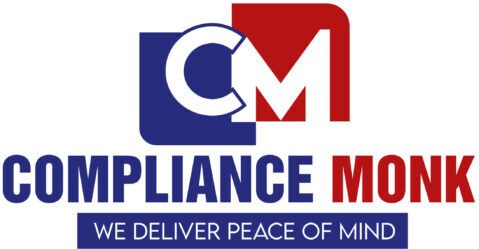
Whether you’re in the food industry, pharmaceuticals, or cosmetics, if you want to cater to the ever-growing market of Muslim consumers, securing a Halal Certification in India is a smart move. This certification verifies that your products and services comply with Islamic law, making them suitable for Muslim consumers.
Table of Contents
What is Halal Certification? 📜
The term “Halal” means “permissible” or “lawful” in Arabic, as per Islamic law (Shariah). Halal Certification ensures that food, beverages, pharmaceuticals, personal care items, and other consumables adhere to strict hygiene and quality standards, making them safe and ethical for Muslim consumers.
Given the increasing global demand for Halal products, more businesses are now seeking certification to enhance credibility and expand their market reach.
Why is Halal Certification Important? 🚀
1️) Access a Booming Market
With a vast and growing Muslim population in India and worldwide, Halal Certification helps businesses tap into a lucrative market segment.
2️) Build Consumer Trust & Confidence
Muslim consumers actively seek Halal-certified products. Certification assures them of compliance with religious dietary laws, enhancing brand trust.
3️) Meet Regulatory Requirements
Some Indian states, like Kerala and Tamil Nadu, have specific regulations mandating Halal Certification for certain products. Compliance helps businesses avoid legal complications.
4️) Gain Global Recognition
Halal Certification is recognized worldwide, opening doors to international markets where Halal products are in high demand.
5️) Competitive Advantage
Being Halal-certified sets you apart from competitors who lack certification, making your products more appealing to a broader audience.
Types of Halal Certification 🏆
Halal Certification is relevant to various industries, not just food. Depending on your business type, you may need one of the following:
- Food & Beverage (Restaurants, hotels, food processing units)
- Catering & Hospitality
- Pharmaceuticals & Healthcare (Medicines, supplements)
- Cosmetics & Personal Care (Skincare, haircare, makeup)
- Cleaning & Household Products
- Packaging & Labeling Materials
- Storage & Transportation (Warehouses, logistics)
Certification bodies offer various schemes, including:
✔ Food & Catering Scheme
✔ Restaurant Scheme
✔ Industrial Scheme
✔ Abattoir Scheme
✔ Warehouse/Storage Scheme
✔ Product Endorsement Scheme
Halal Certification Process 🔍
📌 Step 1: Application Submission
Businesses must apply to a recognized Halal Certification Body. At Compliance Monk, we assist with documentation, application filing, and eligibility assessment.
📌 Step 2: On-Site Audit & Inspection
A team of Shariah & Technical Auditors inspects the business premises to verify:
✔ Ingredient sources & processing methods
✔ Hygiene, cleanliness, and sanitation practices
✔ Storage, packaging, and transportation compliance
✔ Equipment and utensils used in production
📌 Step 3: Review & Approval
The certification body evaluates the audit report. If all criteria are met, a Halal Certificate is issued, confirming compliance.
📌 Step 4: Certification Issuance & Validity
A Halal Certificate is generally valid for one year. Businesses must undergo periodic inspections to ensure continued compliance.
Key Requirements for Halal Certification 📑
✔ Halal Ingredients: All raw materials must be derived from permissible sources, free from alcohol, pork, or non-Halal animal derivatives.
✔ Manufacturing Process: Production lines, machinery, and utensils must be free from cross-contamination with non-Halal substances.
✔ Packaging & Storage: Products must be sealed, stored, and transported to maintain Halal integrity.
✔ Halal Compliance Documentation: Certification requires maintaining proper records and sourcing ingredients from certified suppliers.
How Compliance Monk Can Help 🤝
At Compliance Monk, we simplify the Halal Certification process with end-to-end support:
✅ Expert consultation on eligibility and compliance
✅ Assistance with application and documentation
✅ Coordination with certification bodies
✅ On-site audit preparation and guidance
✅ Fast-tracked certification process
Ready to Get Halal-Certified? 📞Contact Compliance Monk now!
FAQs
1. What is Halal Certification?
Halal Certification is an official document confirming that a product or service complies with Islamic dietary laws. It ensures that food, beverages, cosmetics, pharmaceuticals, and other products meet strict hygiene, safety, and religious guidelines.
2. Why is Halal Certification important for businesses?
It helps businesses tap into a large and growing market of Muslim consumers, enhances brand credibility, ensures compliance with regulatory standards, and provides access to global markets where Halal products are in demand.
3. Which industries require Halal Certification?
While primarily associated with food and beverages, Halal Certification also applies to pharmaceuticals, cosmetics, personal care products, cleaning agents, packaging materials, and logistics services.
4. Who issues Halal Certification in India?
Halal Certification is granted by recognized Halal certification bodies that assess businesses for compliance with Halal standards.
5. What are the key requirements for obtaining Halal Certification?
Businesses must ensure that:
- All ingredients used are Halal-compliant.
- Manufacturing processes prevent cross-contamination with non-Halal substances.
- Packaging and storage maintain product integrity.
- The business follows relevant hygiene and safety standards.
6. How long is a Halal Certificate valid?
Halal Certification is typically valid for one year, subject to periodic inspections and compliance audits.
7. What is the process for obtaining Halal Certification?
The certification process involves:
- Submitting an application to a Halal certification body.
- Undergoing an audit to assess compliance with Halal standards.
- Reviewing audit findings and documentation.
- Receiving the Halal Certificate upon successful verification.
8. Does Halal Certification apply only to food products?
No. Halal Certification extends beyond food to include pharmaceuticals, healthcare products, cosmetics, and even services like hospitality and logistics.
9. Can Halal Certification help businesses expand internationally?
Yes. Halal Certification is globally recognized and can facilitate entry into international markets where Halal compliance is a prerequisite.
10. What happens if a business fails the Halal audit?
If a business does not meet Halal requirements, it will receive recommendations for corrective actions. Once necessary changes are made, a re-evaluation can be conducted.
